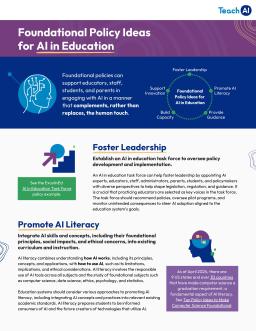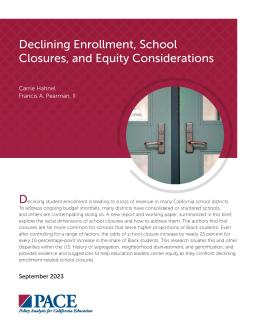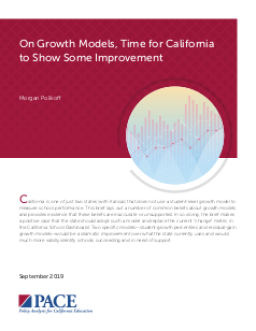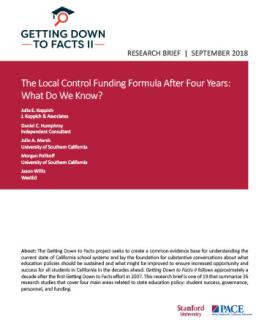Summary
Within the TeachAI Policy Workgroup, PACE has facilitated the development of AI policy informational briefs aimed at ensuring the effective, safe, and responsible integration of AI in education. These briefs offer guidance to education leaders and policymakers, emphasizing the importance of crafting policies that prioritize teaching and learning. The briefs provide insights derived from current research and landscape analysis of AI use in TK–12 educational settings, addressing common questions and centering around five guiding principles for developing responsible AI policies in education.
Summary
Summary
Summary
This brief analyzes the 2018 update of the California School Dashboard, examining improvements and areas for continued enhancement. Using data from the 2019 PACE/USC Rossier poll, the author characterizes use of and support for the Dashboard, finding low use, equity gaps, but high support and preference for the new Dashboard.
Summary
The Local Control Funding Formula (LCFF) shifts control of education dollars to local districts, enhancing resource allocation practices. However, inadequate base funds may constrain progress. Stakeholder engagement is evolving yet remains challenging, and school board involvement is typically modest. LCFF communication and accountability mechanisms receive mixed reviews. County offices of education have expanded their role but will need to increase their capacity. Public awareness of the LCFF lags, but it enjoys substantial support.




